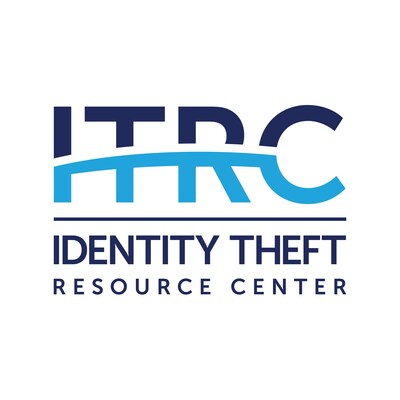Korea IT Times’ interview: Opportunities for South Korean IT Companies in Canada
Press Releases
Jul 31, 2017
SEOUL, South Korea, July 31, 2017 /PRNewswire/ — Owing to U.S. President Trump’s anti-immigration policies and a sharp reduction in the research budgets for the medical and science fields, large IT companies in the United States have begun to move to Canada as an alternative to Silicon Valley.
In reaction to this, the Canadian government has announced an investment of over $100 million in the AI (Artificial Intelligence) industry, allowing Canada to arm itself with more attractive conditions for these companies.
Britain’s DeepMind, the developer of AlphaGo, has also selected Canada to be its first overseas research center. DeepMind announced on July 5th to establish a research center in Edmonton, Alberta and conclude a research contract with the University of Alberta.
DeepMind singled out Canada in the belief that it can easily secure highly talented persons within the far-reaching AI community.
Of University of Alberta graduates, dozens of researchers have already joined DeepMind, including Dr. Aja Hwang who played Lee Se-dol, a nine-dan Korean professional go player. KOTRA DeepMind plans to attract more AI researchers from all over the world to the region for continues studies.
At this time, the Canada Office of Korea IT Times and the KOTRA Vancouver Office are reviewing a jointly held “Korea-Canada IT Tech Cooperation Forum and Export Consultation Meeting” in Vancouver early next year.
For this occasion, Chung Youn-soo, head of the Canada Office of Korea IT Times, carried out an exclusive interview with Jung Hyung-shik, Chief Trade Commissioner of the KOTRA Vancouver Office.
Jung freely spoke about his expectations to “jointly push with Korea IT Times for the project to support Korean IT firms’ advancement into Canada. Now is the best time for Korean IT companies to make inroads into Canada.”
The following is an excerpt of the interview with Jung Hyung-shik, Chief Trade Commissioner of the KOTRA Vancouver Office.
Q: What is the role of the KOTRA Vancouver Office in supporting Korean IT companies’ advancement into Canada?
A: KOTRA has been offering a marketing platform to domestic small and medium-sized companies for their advancement into overseas markets. Likewise, KOTRA has been providing IT companies with consultation services for local market surveys, buyer discovery, exports and advancement.
Through support projects such as participation in local missions, exhibitions and export consultation meetings, attracting buyer’s visits to Korea and agent businesses as local branches, it has helped domestic IT companies advance into the Canadian market with their goods and services.
Q: Would you comment on the current status and future prospects for the IT industry in Canada’s western region?
A: The Province of British Columbia (BC) in Canada has recently posted a rapid growth in terms of the IT industry, even being called “the second Silicon Valley.” In particular, small and medium-sized IT venture firms are enjoying a boom.
Vancouver possesses an excellent IT start-up ecosystem, posting 18th in the rankings of IT start-up development cities.
In particular, Vancouver is famous for active advancement by Amazon, DeepMind, Facebook and Twitter. With the shortage of IT manpower becoming aggravated due to the U.S. anti-immigration policies, more large IT companies in the U.S. are expected to move into Canada under relatively soft conditions in immigration and manpower supply, compared to the U.S.
By sector, the software and computer service accounted for the biggest portion at 80%, followed by ICT wholesale (5.5%), communication service (3.7%) and ICT manufacturing (2.8%).
About 25% of Canada’s top 100 enterprises are located in Vancouver. The city also boasts of its high level of technology and competitiveness in the software industry.
Business start-ups by small, medium-sized and venture firms are also active in mobile applications and game fields. The powerful growth potential has stretched out from the traditional IT service areas, including system integration, IT consulting, repair & maintenance, outsourcing and management service to such new service fields as cloud computing and Internet of Things (IoT).
“Korea IT Times, KOTRA Vancouver Office plans to hold the ‘Korea-Canada IT Tech Cooperation Forum and Export Consultation Meeting’ in Vancouver early next year.”
Q: Would you elaborate on the main fields of interest for IT investors or buyers in Canada?
A: The Canadian IT market has showed a modest growth, accounting for 3.2% of the country’s total GDP standing at 67.9 billion Canadian dollars.
Over the past five years, its annual exports reached some 10 billion Canadian dollars and its imports came to 32.4 billion Canadian dollars.
There are over 38,000 IT companies in Canada and some 560,000 workers engage in the industry. This represents 3.7% of the total labor population in Canada. The annual sales for Canada’s IT industry rose by 28% from 133.4 billion Canadian dollars in 2007 to 182.9 billion Canadian dollars in 2016.
Its portion of the Canadian economy has risen steadily. In keeping with this, the federal government of Canada is mapping out an aggressive policy supporting the related industry through such incentives as a 15% tax deduction for software development cost.
The investors’ interested fields can be classified into various tax breaks and corporate takeovers following legal contracts, away from R&D and general investment.
In case of the “S” company in Vancouver, for instance, it took over a part of the assets of the Korean company “A,” a wireless communication chip and data developer, established a locally incorporated firm and possessed products and research manpower, while receiving various benefits from the government, including incentives for local R&D activities and employment of overseas engineers.
There is keen interest in the M2M (Machine to Machine)-related wireless modem, joint and win-win development of software on the mobile phone communication chip, and cooperation for VoIP (Voice over Internet Protocol) development.
Although various types of solutions have already appeared in the VoIP market, in addition to Skype-style technology, Korea’s VoIP-related technology is well known as an advanced one.
The software field is regarded as one that Korean companies can advance into easily. The gaming, mobile, healthcare fields are emerging as the blue ocean thanks to strong demands.
Q: Would you comment on Canada’s response to Korea’s IT industry?
A: Korea’s IT technology is widely known to have reached a top level in the world. Since the Korea-Canada FTA settlement in 2015, such industries as agriculture, livestock and forestry have enjoyed big benefits. However, it is expected to take some time before actual export transactions are reflected in the IT industry.
Q: Do you have any plans to promote exchanges and business cooperation in the IT industry between Korea and Canada?
A: At present, the exchanges in the IT industry between the two countries are at the initial stage so that it is a potential market. As a result, I think KOTRA’s role will increase in ICT cooperation. As the service field accounts for about 84% of Canada’s IT industry, the business cases in service cooperation between IT companies of the two countries remain at an insignificant level.
Under this backdrop, I think it is very timely that the KOTRA Vancouver Office and the Canada office of Korea IT Times push for holding the “Korea-Canada IT Tech Cooperation Forum and Export Consultation Meeting” in Vancouver early next year to energize exchanges in the IT industry between the two countries.
View original content:http://www.prnewswire.com/news-releases/korea-it-times-interview-opportunities-for-south-korean-it-companies-in-canada-300495338.html
SOURCE Korea IT Times



